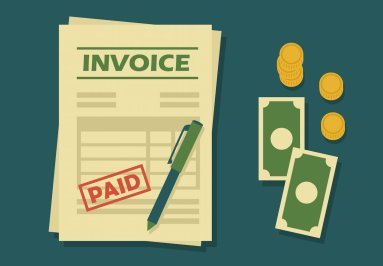 Many people who start a business generally are aware of the fact that there are three main ways to raise capital. The first is so obtain money from an investor. The second is to obtain money from a bank (i.e. a loan), and the third is to do it themselves by investing their own money. However depending on the type of business you have, particularly what kind of customers you have and how you bill them, factoring invoices may be the best suited option.
Many people who start a business generally are aware of the fact that there are three main ways to raise capital. The first is so obtain money from an investor. The second is to obtain money from a bank (i.e. a loan), and the third is to do it themselves by investing their own money. However depending on the type of business you have, particularly what kind of customers you have and how you bill them, factoring invoices may be the best suited option.
What is Invoice Funding?
Invoices, also known as accounts receivable, are created when a business bills its customer and says “pay me later”. Invoice factoring is when a business sells those unpaid invoices to a factoring company in exchange for up front capital. Invoices are sold at a discount and usually the business obtains 80% of the value. After the business’s customer pays the factoring company the value of the invoice, the 20% rebate is given to the client, less the factor fee.
The Benefits of Factoring Invoices
The benefits of factoring invoices are many, and usually far outweigh the costs. Here are the main benefits:
1. Match the timing of income and expenses.
Despite a common misperception that invoice factoring signals a company is in trouble, in most cases it’s actually quite the opposite. Rapidly growing businesses need capital to continue to take on new business. Therefore financing invoices is a great way to match income and expenses, so a business has the readily available capital it needs to take on a new job.
2. Bridge to your busy season.
Many businesses are cyclical and have higher revenue during their busy season. To ramp up for busy season, a business will need capital on hand. Invoice factoring is a a viable solution to closing short-term cash flow gaps.
3. Cheaper than selling equity.
Factoring invoices is a cheaper way to raise money than selling shares of your company to an investor. If you sell shares, you forever give up a percentage of future profits to the investor. If you plan to be in business for a while, that could become very costly as you grow to higher revenue levels. At 1-3% per month, factoring is way cheaper.
4. Safer than a loan.
A true factoring product is what’s known as “non-recourse factoring“, meaning the factoring company takes the risk that your customer’s don’t pay. These deals should never have a personal guarantee involved. This differs from a bank loan, that has liability attached to it if your client’s don’t pay, often times with a personal guarantee.
5. Fast time to funding.
The typical turn around time from your first conversation with a factor until you receive funds is 3-5 days, far faster than a bank.
The Cons of Factoring Invoices
Despite the many benefits of invoice financing, there are some negative aspects associated with it.
1. More expensive than a loan.
Factoring companies assume the risk that your customer don’t pay. Because of this increased risk, the price of factoring invoices is higher. You have to ask yourself how much risk you want to take. If you really want the cheapest financing deal out there, you need to be very confident in your customers paying and ok with taking that risk that you will be held liable if they don’t. In that case, look into invoice financing. However, if you absolutely do not want to take that risk, invoice factoring is for you.
2. It could impair your ability to obtain a bank loan.
Factoring companies will take a “security interest” in the assets of your business. At the very least, they’ll take a security interest in the current and future receivables of your business. Therefore it’s important to have the discussion with your factor, to ask if they will “subordinate” if they obtain a pre-approval for bank debt. Most factors will, however you don’t want to get set-up with a factoring facility to satisfy a short term capital need, at the cost of a better long-term solution.
We’re Here To Help You
In order to make the best decision for your business, you must thoroughly weigh the pros and cons before proceeding with such an important decision. Contact us today for a free assessment of your financing needs and business strategies to see if factoring invoices is a good fit for you and your business.
